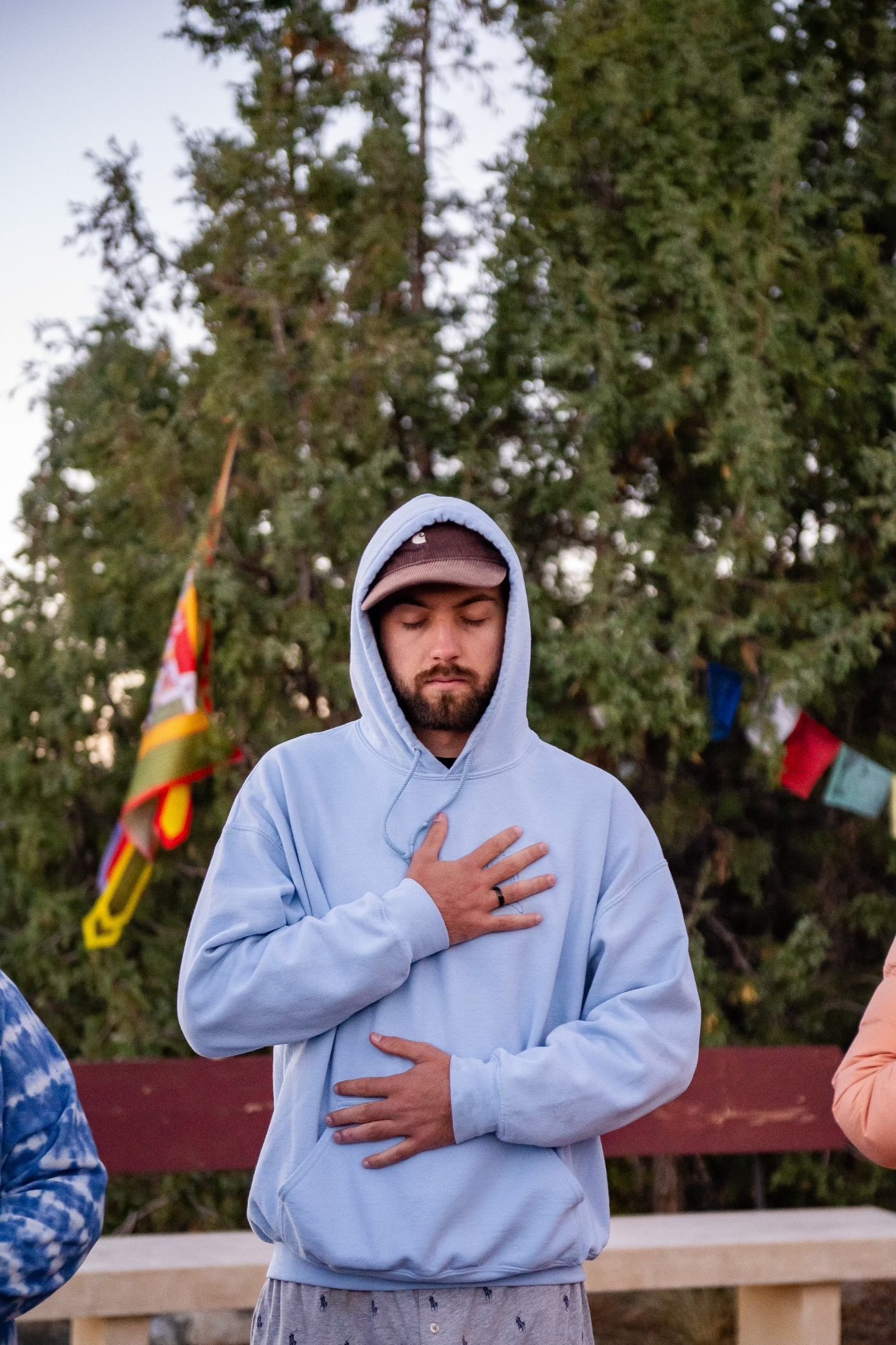What is mindfulness? How is it useful?
In our fast-paced world, it's easy to feel constantly overwhelmed, stressed, and disconnected from ourselves and others. We often find ourselves on "autopilot," just surviving our lives rather than truly living them. But what if the key to unlocking a more vibrant, connected, and peaceful existence was simpler than you think?
At its core, mindfulness is about cultivating awareness and paying attention to the present moment. It's about turning on your awareness, getting in your body, and developing a relationship with yourself. Rather than getting "caught in a morass of seaweed and story and drama" in your head, mindfulness helps you notice what’s actually happening in front of you. It's a personal responsibility, not a luxury, that empowers you to show up authentically for yourself and everyone you interact with. This practice is fundamental for nervous system regulation and emotional regulation.
Our culture often tells us we need to "get out of discomfort" by buying products or achieving certain goals, creating a culture of not enoughness where we constantly feel that we need to behave and be different. When we feel uncomfortable, our nervous system can trigger a "fight, flight, or freeze" response, leading to rapid escalation from zero to sixty. This constant state of vigilance and discomfort fuels suffering, often rooted in a sense of inadequacy and the belief that we are more flawed than the next person. Mindfulness offers a powerful way to meet this cycle, helping us navigate the difficulties of being human by building the capacity to ride the waves of anything that comes without being knocked so completely sideways. It is crucial for improving mental health and emotional health in our demanding lives.
Simple Ways to Cultivate Mindfulness in Your Daily Life
Cultivating everyday mindfulness doesn't require hours of meditation or a retreat to a remote mountain center, though those can be transformative. It can start with simple, actionable practices for stress reduction:
One of the most profoundly impactful tools is simply to pause. Take a breath in and a breath out. Notice how easy it is, yet how little we do it. This brief moment allows for objectivity and helps your nervous system drop, fostering self-awareness.
THE SEW Check-in practice involves identifying your Somatic sensations (what three physical sensations are happening in your body right now?), Emotions (what three emotions are you feeling?), and Want (what do you want or need in this moment, or generally?). Put your hands on your body, perhaps on your belly or chest, and send your breath and attention to these pieces of awareness.
Instead of trying to fix or get rid of a sensation, get curious. Ask: Does it have a color, shape, size, or weight? What temperature is it? How does it want to be sat with or breathed with? This practice allows you to develop a relationship with the sensation and your own experience. To learn from it and witness it without judgment.
A core tenet of mindfulness is recognizing that there's nothing wrong with discomfort or fear; we're wired for them, they're normal and healthy emotions to experience. Instead of immediately trying to change your experience by coping or escaping, just notice what's happening. "I hear you heart, all revved up... I'm right here we're going to do this together". By not resisting suffering and breathing with it, you can lessen its grip and give yourself agency over how you respond to it. This expands your window of tolerance, allowing you to hold space for uncomfortable feelings without being consumed by them.
Take a few minutes to connect with things you are grateful for in your life, right here and now. These can be simple things like the taste of coffee, the smell of childhood, or the smile of a stranger. This practice helps you connect with joy in the present moment, rather than foreboding peace and happiness until future conditions are met.
Surviving To Thriving
When consistently practiced, mindfulness offers profound benefits for personal growth and resilience:
Mindfulness helps you take personal responsibility for how you show up for yourself, and therefore every human you interact with in the day. It is the key to unlocking the ability to guide yourself and others.Mindfulness builds your capacity to ride the waves of life's ups and downs, without being completely derailed. You learn to normalize feelings like fear and uncertainty, knowing they belong. While our nervous systems are wired for survival, constantly operating in fight, flight, or freeze prevents us from thriving. Mindfulness helps you navigate these responses consciously, allowing you to move beyond merely surviving to living a life worth fully living.
Embracing Discomfort and the "Now What"
A common resistance to mindfulness is the desire to avoid discomfort. We often ask why things are happening, sometimes to avoid the discomfort of going forward. But even if we knew all the why's, it wouldn't be as satisfying as we hope. Mindfulness shifts us from endlessly asking "why" to embracing "now what". It encourages a mindset of curiosity, courage, and willingness.
By letting go of the need to "fix" everything and instead learning to relate to your suffering differently, you discover a profound sense of power. The simple, free tools of mindfulness can transform your experience of being human, allowing you to not just survive, but truly thrive, even when, especially when, you're in great suffering.
Humanity Shared offers transformational offerings and leadership programs that combine the practices of awareness and mindfulness to help individuals and organizations thrive. Discover more ways to cultivate your inner calm and enhance your well-being here.


